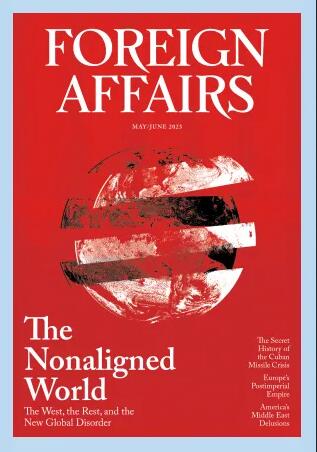对抗俄国在战争中的宣传
IF 6.3
2区 社会学
Q1 INTERNATIONAL RELATIONS
引用次数: 1
摘要
俄罗斯和乌克兰之间的冲突已经持续了一段相当长的历史时期,但在过去的十年里,两国之间的对抗已经达到了很大的规模。起初,俄罗斯采取了混合战争的方式,从2022年2月24日开始,俄罗斯开始了全面战争。在这个过程中,敌人将信息影响作为武器的一种,所以今天反击的能力非常重要。这项研究的目的将是考虑并找到对抗俄罗斯宣传的方法。在撰写研究报告的过程中,使用了以下研究方法:信息分析,综合,规范和概括。由于研究的结果,考虑了大量的各种类型的信息,特别是研究,科普类书籍,立法行为,高级官员的声明和呼吁,最重要的是媒体上的出版物。在分析这些信息的过程中,确定了生活的哪些方面受到俄罗斯宣传的影响,这些方面包括:世界观、历史和关于军事行动的信息。此外,还考虑了俄罗斯人用于传播宣传的方法,特别是电视和社交网络。因此,得出的结论是,反对俄罗斯的宣传应该在教育领域进行,特别是引入媒体扫盲课程,发展历史产业,乌克兰国家机构的声明和网络安全。这项研究为详细研究俄罗斯宣传现象的社会学家、致力于开发新教学方法的教师和网络安全领域的专家提供了新的视角和基础本文章由计算机程序翻译,如有差异,请以英文原文为准。
Countering Russian Propaganda During the War
The conflict between Russia and Ukraine has been going on for a substantial period of history, but over the past decade, the confrontation between the two countries has taken on a major scale. At first, Russia resorted to conducting a hybrid war, and from February 24, 2022, it began a full-scale war. In the course of this, the enemy uses information influence as one of the types of weapons, so today the ability to fight back is very important. The purpose of the study will be to consider and find ways to counter Russian propaganda. In the course of writing the study, the following research methods are used: information analysis, synthesis, specification, and generalisation. As a result of the study, a large amount of information of various types is considered, in particular, studies, books of popular science genre, legislative acts, statements and appeals of high-ranking officials, and, most importantly, publications in the media. In the course of analysing this information, it is determined which aspects of life are affected by Russian propaganda, those include: worldview, history, and information on the conduct of military operations. In addition, the methods Russians use to spread propaganda are considered, in particular, television and social networks. Thus, it is concluded that countering Russian propaganda should take place in the field of education, in particular, the introduction of media literacy courses, the development of the historical industry, statements by Ukrainian state institutions, and cybersecurity. The study creates a new perspective and ground for further investigation by sociologists who study the phenomenon of Russian propaganda in detail, teachers working to develop new teaching methods, and specialists in the field of cybersecurity
求助全文
通过发布文献求助,成功后即可免费获取论文全文。
去求助
来源期刊

Foreign Affairs
INTERNATIONAL RELATIONS-
CiteScore
4.80
自引率
0.00%
发文量
2
期刊介绍:
Founded in 1922, Foreign Affairs is a prominent American magazine that focuses on international relations and U.S. foreign policy. It is published by the Council on Foreign Relations, an esteemed nonpartisan think tank and membership organization dedicated to analyzing U.S. foreign policy and global affairs. While the print magazine is released every two months, the website offers daily articles and publishes anthologies every other month.
 求助内容:
求助内容: 应助结果提醒方式:
应助结果提醒方式:


